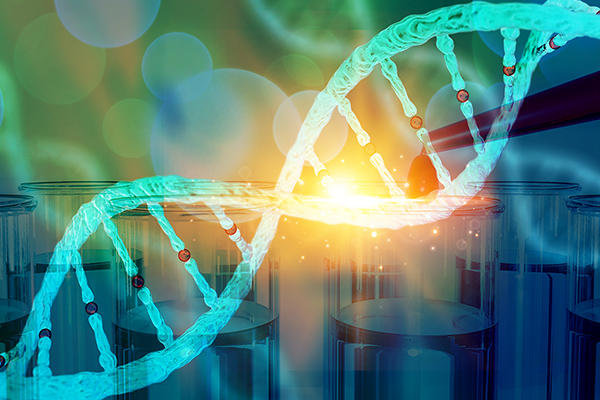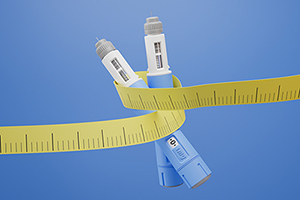



| By Dr. Ronald Hoffman

I recently read The Code Breaker: Jennifer Doudna, Gene Editing, and the Future of the Human Race, Walter Isaacson’s new book on the discovery of CRISPR, the new gene-editing technique that promises to revolutionize medicine. Isaacson is the erudite chronicler of scientific innovation. His previous books on Einstein, Leonardo da Vinci, the Wright brothers, and Steve Jobs have explored how genius and tenacious drive have resulted in amazing scientific breakthroughs that have transformed our lives.
Isaacson is a contemporary of mine, having graduated college in 1974, the same year I did. He went on to be a Rhodes Scholar. He’s an expert in the history of science, and was CEO of the Aspen Institute, a think-tank that shapes the development of technology, ostensibly to further societal goals. While it characterizes itself as non-partisan, it’s been criticized for being too liberal. Isaacson drew flak during his tenure as CEO for trying to bring in conservative and Republican viewpoints. He displays an obvious infatuation with technology but is wise enough to point out its limitations and potential downsides.
While I’m partial to good escapist fiction, I felt it was incumbent on me to tackle The Code Breaker to better understand the scientific breakthroughs that are rapidly transforming medicine. The first part of the book recaps the history of deciphering the mysteries of DNA, starting with the revolutionary discovery of the double-helix in the 1950s by Watson and Crick (which is by now familiar to every high school biology student).
This led to the Human Genome Project, which, by 2003, had deciphered the entire genetic code that underlies human diversity.
With this resource at their disposal, molecular biologists began tackling the Holy Grail of their trade: learning how to read the code and developing techniques to cut and splice the code to correct mistakes that lead to disease.
Enter Jennifer Doudna, a young female scientist with an insatiable curiosity and a powerful drive to get there first.
Isaacson explores the roots of her success. To be a Noble Prize-winning scientist requires a mix of competitiveness and collaboration, of ruthlessness and collegiality. The first half of the book is an inside-baseball recounting of the peregrinations of her research efforts, a little too detailed for my taste.
What’s interesting is how often brilliant scientists hop from one prestigious lab to another, often crossing continents to pursue the best opportunities. They’re courted like prize college quarterbacks.
Additionally, the new dimension to research is that there’s a huge business interface; venture capitalists in search of windfall returns are continually hovering around researchers, tempting them into collaborations. Patents on intellectual property proliferate. A whole new arena of law has sprung up. Who “owns” the latest technique that will yield cures to genetic diseases, cancer, or the latest vaccine to cure a viral scourge? It can be a cut-throat business!
The other thing I realized is that, as the ultimate “generalist”, I am hopelessly clueless about the intricate technology that delivers cures for my profession to deploy. For example, I can order an MRI, interpret the results, have a rudimentary understanding of how it works, but don’t ask me the particulars of the magnetic fields and radio waves.
Same with CRISPR. Even after reading The Code Breaker, I’m left in awe at the brilliance of scientists who devised it. We doctors are trained in science, but we’re dilettantes compared to the researchers at the frontiers of innovation. We’ll know enough to use the technology, but please don’t ask us to explain what goes on “under the hood”.
In short, CRISPR—and new techniques that may supersede it—enable us to cut and paste the genetic code of life. Hereditary diseases like sickle cell anemia seem like low-hanging fruit, but at present it costs a million dollars per patient to effect a cure with gene splicing. There are about 100,000 Americans who suffer from it, so do the math: 100 billion dollars to eradicate one disease. As medical costs eat up ever-larger proportions of our GNP, there’s real reason to worry about inequity in allocating pricey fixes.
Then there are the ethical questions. The usual somatic “fix” can correct one person’s faulty genetic code for their entire lifetime, but won’t be passed along to their ancestors—but if it were a so-called “germ line” edit, that would be creating a new race of GMO humans!
The issue was highlighted a few years back when an audacious Chinese researcher altered some embryos to insert a gene that conferred resistance to HIV to all their descendants. At first, he was hailed as a hero, but he was soon engulfed in a firestorm of controversy. He had crossed a line that threatened to usher in an era of enhanced humans.
Who calls the shots on what to select for? Understandably, prospective parents of a child destined to suffer from an incurable disease would want to deploy the technology. But what if it were to be used to select for a smarter, more attractive or more athletic super-baby? And what if germ line edits were employed to create a race of super-humans? Soldiers capable of incredible feats of strength, endurance and aggressiveness? Docile, indefatigable workers? Space voyagers capable of withstanding the rigors of interplanetary travel and colonization?
These ethical dilemmas are what constitute the second half of The Code Breaker. The genie is out of the bottle and we as a society have to learn how to properly harness it, and curb abuses, or else Aldous Huxley’s Brave New World will seem prescient.
Already, maverick bio-hackers are using readily available kits to modify their DNA; medical tourism is luring patients offshore to clinics purveying unproven gene therapies for conditions like Alzheimer’s. Renegade actors in the world community with no regard for human rights may be gearing up to harness it for evil purposes.
Bottom line: techniques like CRISPR promise to radically alter the medical landscape in coming decades, but perils abound if we don’t rein in abuses in our headlong rush to improve on our natural human endowments. Better read about it and be forewarned.
Though we think of declining estrogen as the hallmark of menopause, it's actually common for…

Up to 12 percent of Americans have ulcers at some point in life. Peptic ulcers…
Gallbladder disease is a modern illness. An estimated 20 million Americans have gallbladder disease. The…

New, more powerful weight loss drugs: Drugs like Wegovy, Rybelsus, Ozempic and Mounjaro/Zepbound are revolutionizing…

According to the Lancet, autoimmune disease affects one in ten people globally and it’s now…

This past week we were regaled with headlines like: High levels of niacin may increase…

Leyla Weighs In: The Erosion of Trust in Nutritional Research

Our virtual voicemail is open 24/7, so there's no need to wait to submit your questions for Dr. Hoffman. Leave a message, and you may hear your question featured on the Intelligent Medicine radio program!